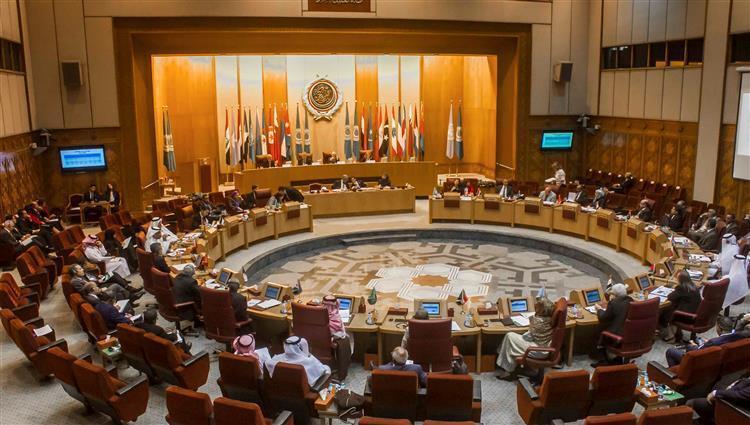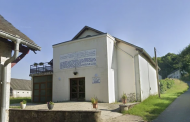Asmaa al-Batakoshi
Combating terrorism in all its forms – in terms of support, funding and implementation – was the hot topic at the emergency Arab summit in Mecca. As Iran is the most prominent sponsor of terrorism in the Middle East, it is considered a threat to Arab national security. The final communiqué issued by the summit condemned the Houthi attacks against Saudi Arabia and affirmed the kingdom’s right to defend its territory, emphasizing the states’ support for any measures taken by the kingdom against such attacks within the framework of its sovereignty as guaranteed by international law.
The statement also stressed that Arab countries seek to restore stability and security in the region. The only way to do so is to respect all countries in the region with the principles of good neighborliness and refrain from using or threatening force, interfering in the internal affairs of states or violating their sovereignty.
In the same context, the Gulf Cooperation Council (GCC) countries expressed their support to Saudi Arabia and the UAE to take any actions needed to defend their security in the wake of the attacks on their oil assets in the recent period.
According to the Saudi Press Agency, the six GCC countries discussed a joint defense mechanism between the GCC countries, and they also called on Iran to stop supporting, funding and arming militias and terrorist groups.
Palestinian cause
On the question of Palestine, the final statement affirmed its adherence to the resolutions of the 29th Arab Summit in Dhahran and the 30th in Tunis concerning the adherence to the establishment of an independent Palestinian state with East Jerusalem as its capital.
Palestinian President Mahmoud Abbas said in a speech at the emergency summit that the Palestinians will not participate in the workshop called for by the US administration in Manama, refusing to replace the principle of land for peace and stressing absolute rejection of the American attempts to topple international law and legitimacy.
Egypt’s speech at the summit
In Egypt’s speech during the summit, President Abdel Fattah al-Sisi said that the recent attacks on oil facilities in Saudi Arabia by the Iranian-supported Houthi militias and their continuous attempts to target the kingdom with missiles, as well as the attacks on the UAE’s territorial waters, are considered explicit acts of terrorism, which require clear condemnation on the part of the entire international community.
Sisi stressed the need to activate mechanisms of Arab cooperation in the field of combating terrorism and strengthening the region’s own capabilities to confront it, adding that perhaps these recent threats represent an important occasion to renew the discussion on activating mechanisms of joint Arab action that are already proposed.
Qatar crisis
On the other hand, Saudi Foreign Minister Ibrahim bin Abdulaziz Al-Assaf said that the kingdom and the Gulf countries are discussing the causes of the Qatari crisis. He added that a solution is possible when Doha returns to the “right path.” This came after the two Arab summits in which Qatar’s Prime Minister Sheikh Abdullah bin Nasser Al Thani took part, becoming the country’s top official to visit the kingdom since the crisis began. Saudi Arabia had invited Qatari Emir Sheikh Tamim bin Hamad Al Thani to attend the summits.
Dr. Said Al-Lawandi, an expert on international affairs at the Al-Ahram Center for Political and Strategic Studies, said that the Arab summit was aimed at mobilizing the greatest number of Arab positions in the face of the challenges and dangers posed by Iran, in addition to discussing ways to limit its role in the region.
In 2015, Saudi Arabia established an Islamic alliance to combat terrorism and succeeded in mobilizing a large number of countries, Lawandi stated, stressing that the presence of a large number of leaders and countries will send a message that Saudi Arabia has Arab and international support against Iranian threats.
Other issues
That there were also other files discussed by the Arab summit, Lawandi mentioned, including the latest regarding the Palestinian issue, addressing the phenomenon of terrorism growing significantly in Arab and European countries, and the development of an Arab military force.
Lawandi stressed that Iran would understand only one thing: Hezbollah, Iran’s Revolutionary Guards and Iran’s other proxies being classified as terrorist organizations and targeted. He added that the international community must continue to fight terrorism, especially in countries such as Syria and Iraq, and target these militias, which is the only way Iran will understand.








































admin in: How the Muslim Brotherhood betrayed Saudi Arabia?
Great article with insight ...
https://www.viagrapascherfr.com/achat-sildenafil-pfizer-tarif/ in: Cross-region cooperation between anti-terrorism agencies needed
Hello there, just became aware of your blog through Google, and found ...